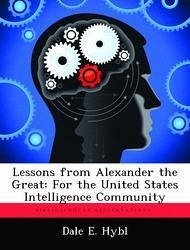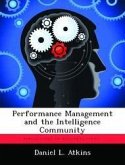Considering the importance of advance intelligence about an adversary to both ancient and modern military operations, it is logical that lessons regarding intelligence learned in antiquity are still relevant to achieving success in the modern world. Among the ancient empires that utilized foreknowledge of their enemies to achieve victory, Alexander the Great's success across the spectrum of military operations and in regions of the world where the United States (U.S.) is currently engaged in on-going operations, makes his activities worthy of study. This paper seeks to derive relevant lessons from Alexander's Intelligence Model that can be applied to the modern U.S. Intelligence Community (IC). To do so, it first reviews Alexander's collection and use of intelligence prior to the Battle of Gaugamela in order to demonstrate that Alexander's use of intelligence is worth examining. It then establishes an analytic model that can be used to analyze Alexander's intelligence system. Next, it applies that analytic model to Alexander's collection and use of intelligence in order to establish a model for Alexander's intelligence function. Finally, it derives lessons from Alexander's Intelligence Model for application to the modern U.S. IC.








